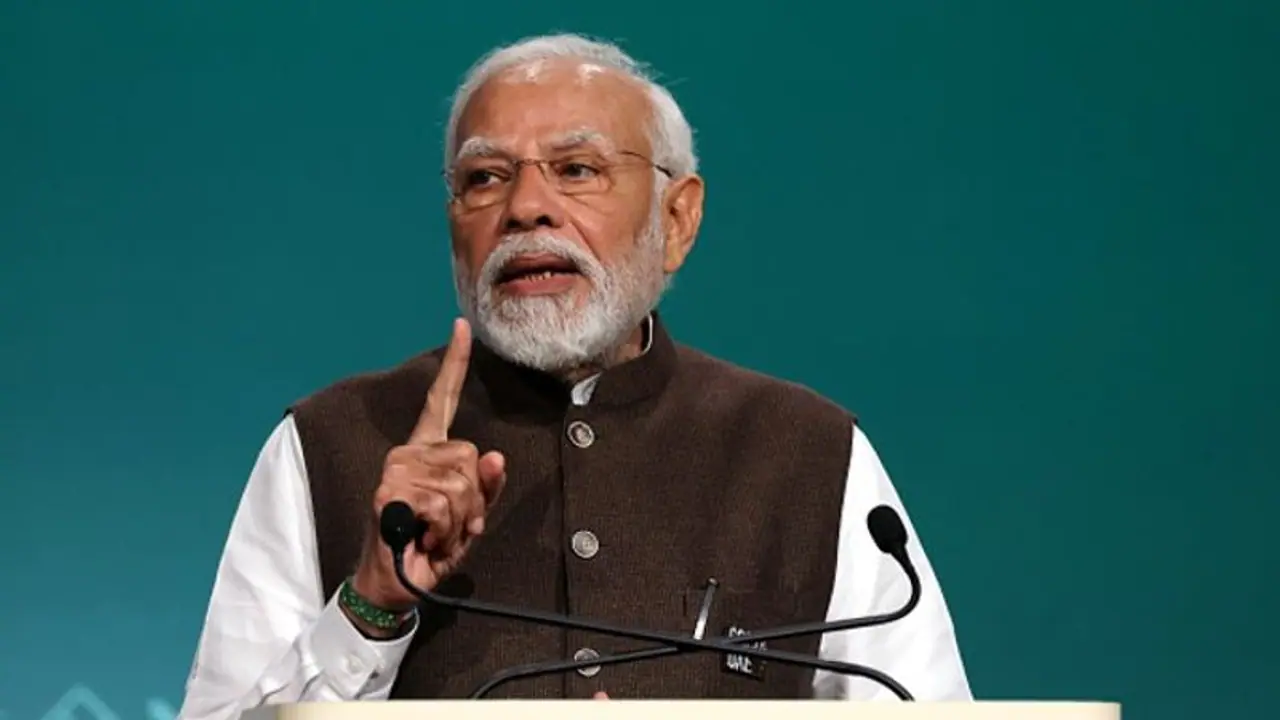The declaration calls for climate action to achieve “benefits for health from deep, rapid, and sustained reductions in greenhouse gas emissions, including from just transitions, lower air pollution, active mobility, and shifts to sustainable healthy diets”.
India opted not to sign the COP28 Declaration on Climate and Health on Sunday, with reports citing concerns that implementing measures to reduce greenhouse gas use for cooling in the health sector, a key point in the document, may not be practical or achievable within the country's healthcare infrastructure in the short term.

The declaration calls for climate action to achieve “benefits for health from deep, rapid, and sustained reductions in greenhouse gas emissions, including from just transitions, lower air pollution, active mobility, and shifts to sustainable healthy diets”.
During the inaugural Health Day at the 28th UN Climate Change Conference (COP28) on Sunday, a declaration was issued expressing serious concerns about the adverse effects of climate change on health.
Presently, 124 countries have signed the declaration, but notable absentees from the list of signatories include the US and India, both among the top greenhouse gas emitters.
The declaration underscores the urgency of making rapid and significant reductions in greenhouse gas emissions to address the crucial intersection between climate change and global health.
A disagreement arose over a commitment in the draft regarding the reduction of greenhouse gases for cooling applications within healthcare infrastructure, a measure India reportedly finds challenging to adhere to, according to PTI quoting sources.
Given India's ongoing healthcare challenges, compounded by the impacts of climate change, there are concerns that implementing greenhouse gas reduction measures for cooling in the health sector could impede the country's capacity to meet the increasing demands for medical services, especially in remote and underserved areas, as highlighted by a delegate from Kenya.
In its G20 declaration, India highlighted the importance of resilient health, focusing on three key health priorities during its G20 presidency: establishing a robust healthcare system, facilitating access to medical countermeasures, and fostering a platform for international sharing of digital goods.
The COP28 Declaration emphasizes the need to address the diverse range of impacts that climate change imposes on health. This encompasses aspects such as mental health and psychosocial well-being, the preservation of traditional medicinal knowledge, safeguarding livelihoods and cultures, and managing climate-induced displacement and migration.
The declaration seeks to advocate for a comprehensive approach in comprehending and addressing the varied health challenges arising from a changing climate.
A key focus of the declaration is the dedication to addressing inequalities both within and among nations. It underscores the importance of implementing policies that expedite the attainment of the Sustainable Development Goals (SDGs), with a specific emphasis on SDG3, which prioritizes good health and well-being.
This holistic approach aims to diminish poverty and hunger, enhance health and livelihoods, reinforce social protection systems, improve food security and nutrition, and ensure universal access to clean energy, safe drinking water, sanitation, and hygiene.
Also read: 'Meeting friends always a delight': PM Modi on selfie with Italian PM Giorgia Meloni
Recognizing the carbon footprint associated with health systems, the declaration urges measures to mitigate emissions and minimize waste in the health sector. This entails activities such as evaluating greenhouse gas emissions from health systems, formulating action plans, setting nationally determined decarbonization targets, and implementing procurement standards for national health systems, encompassing supply chains.
The aim is to advocate for sustainable practices within the health sector, aligning with broader climate objectives.
In response, Jess Beagley, Policy Lead at the Global Climate and Health Alliance, noted that India's absence from the list of over 120 countries endorsing the COP28 health declaration is noteworthy, especially considering its status as one of the leading global emitters and home to one billion of the world's population.
"The decision not to support a political document at this level on the impacts of climate change and human health, and the opportunities of climate action for wellbeing, sends a concerning message regarding consideration of the health of people in India and globally," Beagley said.
